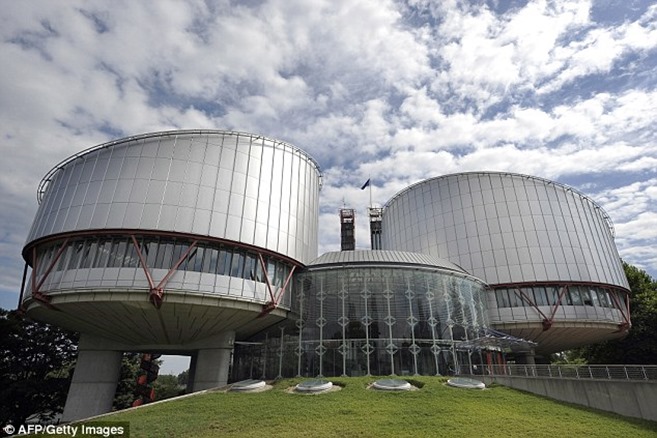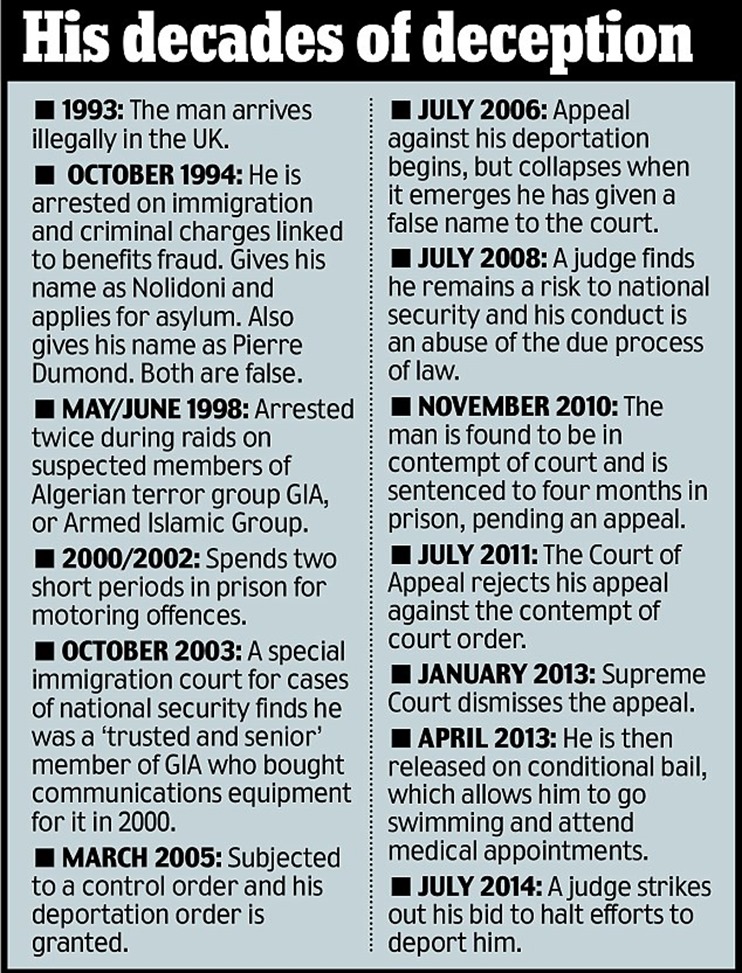Daily Mail
August 11, 2014

An Islamic terrorist has stopped Britain deporting him – by refusing to give his name for 21 years.
A judge ruled that the Algerian is a ‘trusted and senior’ member of a violent terrorist group and has helped suspects abroad.
But his lawyers have used human rights laws to prevent the Government from throwing him out of this country.
Officials cannot draw up crucial paperwork guaranteeing his safety without knowing his true identity.
Meanwhile, taxpayers have been left to pick up the multi-million pound bill for his legal aid and months of NHS hospital care.
Astonishingly, the terrorist, known only as B, is free to walk the streets because his bail conditions were ‘relaxed’ to allow him to go swimming and worship at a mosque.
The legal stand-off provoked a furious response from a senior Tory who branded human rights laws ‘a farce.’
Dominic Raab, MP for Esher and Walton, said: ‘It is a damning indictment of the human rights farce in this country that this man has been able to run rings around the deportation system.

‘If a dangerous criminal or suspected terrorist can frustrate deportation, by spewing out human rights objections while refusing to give his name so the claims can be checked, it turns the system on its head.
‘Even the human rights lawyers should be embarrassed, it’s so ridiculous.’ The saga emerged in a recent court ruling when B tried to halt deportation proceedings. But judges struck out his appeal. His lawyers had said the failure to resolve the stand-off was a breach of his human right to an ‘effective remedy’ by the State to his legal limbo.
But the judges criticised the failure of the mystery man to identify himself as a ‘deliberate distortion of the evidence’.
They said his ‘manipulation of information, his contempt and abuse of process’ must not succeed because it would encourage others to ‘behave in a similar way’.
The terrorist arrived illegally in Britain in 1993. The Special Immigration Appeals Commission found he bought a satellite phone and airtime for extremists in Algeria and Chechnya in 2000.
The terrorist originally gave his name as Nolidoni, later claiming to be Pierre Dumond. Both identities were false. He then refused to identify himself, as his lawyers cited two sections of the European Convention on Human Rights.

